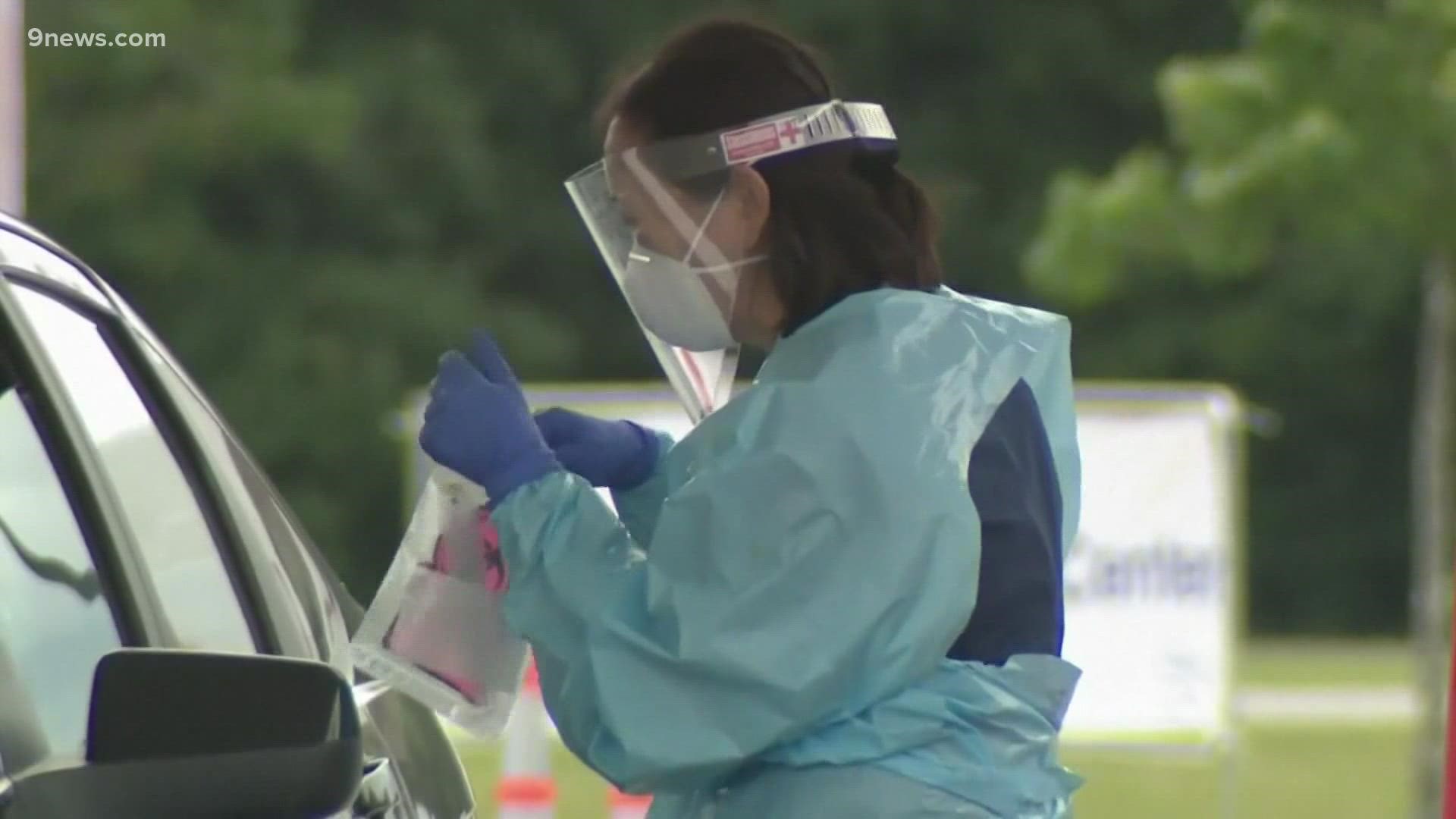CENTENNIAL, Colo. — Contact tracers are dealing with a familiar situation, as cases and hospitalizations due to COVID-19 continue to rise in Colorado.
“What’s similar right now as it was in 2020 is we have shortened our investigation window, meaning we can’t reach out to everyone by phone because we have so many cases,” Jennifer Chase, who leads the tracing effort for the Tri-County Health Department (TCHD).
Much has changed since the fall surge of 2020, most notably the availability of vaccines. But Chase said people refusing the vaccine necessitate case investigations and contact tracing still.
“We aren’t doing anything differently in regards to contact tracing,” she said. “We’re still attempting to reach out to everyone to do case investigation and contact tracing.”
With the recent surge, Chase said anyone with a positive case is going to get a letter from the health department explaining what they should do to quarantine. But her team can’t call every individual who tested positive. Instead they’ll call anyone who interacts with a high risk setting.
Contact tracing has become more difficult recently, she said, as more and more people protected by vaccines are venturing back out into the world. Case investigations become more difficult as people have more interactions.
“People are getting out and going to restaurants, seeing friends,” she said. “The contact tracing is a bit more challenging now.”
Chase said her team of 250 is fully staffed now, but they have faced the same labor issues as most industries have seen as the country recovers from the pandemic with people changing jobs. Chase said about 10 contact tracers leave her department every month.
“Attrition in this work is pretty high,” she said. “People get burned out pretty quickly in this level of work and investigation.”
Another challenge comes with new at-home tests for the virus. She said many people who test positive may not be reporting their results to their local public health agency or the state, which can make it tough to track where a transmission of the virus originates.
Chase said anyone with an at home test can report a positive result to the state. She said people can also call their local health department to report their results.
SUGGESTED VIDEOS: Full Episodes of Next with Kyle Clark

